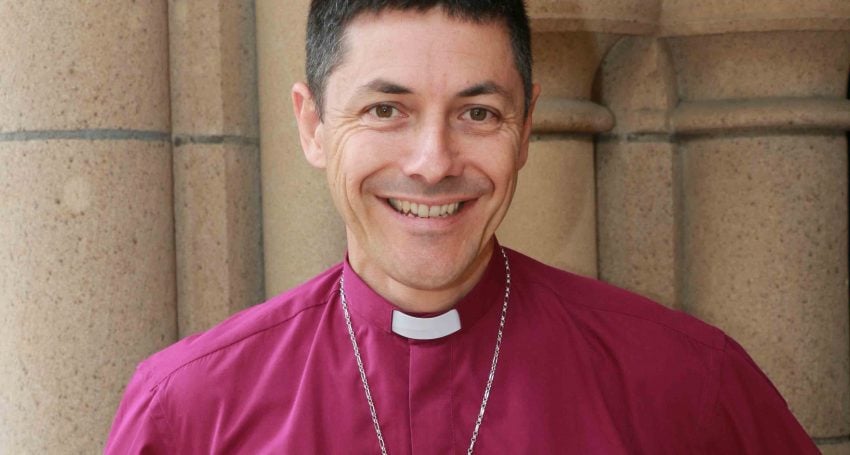We are “all children of God”
Features
“It is common in Christian churches, including in the Anglican Church where I serve, to find a wide spectrum of understanding about human sexuality and gender. For some, this is a sensitive topic. However, what remains paramount is the absolute necessity to create an environment that enables all people to feel safe and to flourish,” says Bishop Jeremy Greaves, Chair of the Anglican Schools Commission

I have spent much of my life in the Anglican Church. Some of my earliest and fondest memories are of Sunday School or being an altar boy alongside my best mate. Church youth group was where I first fell in love, and it was on a church camp in my teens that I had my first kiss. My family (seven of us, including granny) filled a suburban Adelaide church pew weekly.
I took it for granted that there was a place for me in the Church. It never occurred to me that someone might be unwelcome. The only God I ever remember hearing about in church as a child was one whose love for me utterly exceeded my understanding.
Like many young people, I gave God and church away in my teens. I was bored and unsure that I believed much beyond the idea that I was loved and lovable. “The angry young man in the fifth row” (as my parish priest referred to me once) stopped going to church — for a while.
However, because of my childhood experience in a very ordinary Anglican parish during the 1970s and 80s, I knew I’d be welcomed back when I chose to return.
Central to Christian theology is the belief that every single one of us is made in the image of God. Every one of us is loved unconditionally by God and the primary purpose of the Church is to gather people together and through that gathering, show the world what that love might look like.
Advertisement
At their best, those gatherings embrace a diversity that has been part of the Church since its earliest days. From the start, Christian faith communities have challenged class, cultural, sex and gender norms. The earliest creed found in Galatians 3.26-28 has been a reminder to Christians from the beginning that we “are all children of God…There is no Jew or Greek, no slave or free, no male or female, for [we] are all one.”
And, in a world where “foreigners” are still often regarded with suspicion, slavery still sees human beings treated as property and women still fight to be included and heard, this creed remains salient. In a world, and a Church, where we have become so adept at “othering” those who might not fit our own understanding of things, it is helpful to return to this simple statement of belief that begins with the premise that we “are all children of God”.
And, of course we must avoid, at all costs, diminishing the dignity of any “child of God” by reducing them to a stereotype or a problem, as happens so often when we talk about gender and sexually diverse people in the Church, including in Church schools. My hope is that all Christian churches, including their schools, will be communities where everyone learns that they are known and loved by God, cognisant of their intrinsic value.
Advertisement
Diversity is an enduring theme at the heart of the Christian story, as the earliest faith communities were characterised by variety. The Church I know has come to value diversity as a positive good — a source of profound richness. So, my hope is that we acknowledge and celebrate variety within our church communities, including in our schools, and that hospitality will be given to everyone, regardless of cultural and linguistic backgrounds, gender, sexuality, ideology or perceived ability/disability. Everyone should be included and welcomed.
Recent moves on the part of some schools to exclude students on the basis of their gender or sexuality have caused significant distress for many, and prompted me to write to the Heads of our Anglican schools in Southern Queensland about our Anglican ethos that offers welcome to all. That letter has been well received in our schools and widely shared beyond them.
It has been incredibly encouraging to see those directly impacted and the wider community uniting so strongly to stand up for our vulnerable young people, whose safety and wellbeing have been seen to be threatened.
It is common in Christian churches, including in the Anglican Church where I serve, to find a wide spectrum of understanding about human sexuality and gender. For some, this is a sensitive topic. However, what remains paramount is the absolute necessity to create an environment that enables all people to feel safe and to flourish.
Editor’s note: A version of this reflection was first published by ABC Religion and Ethics on Friday 3 February 2022.






